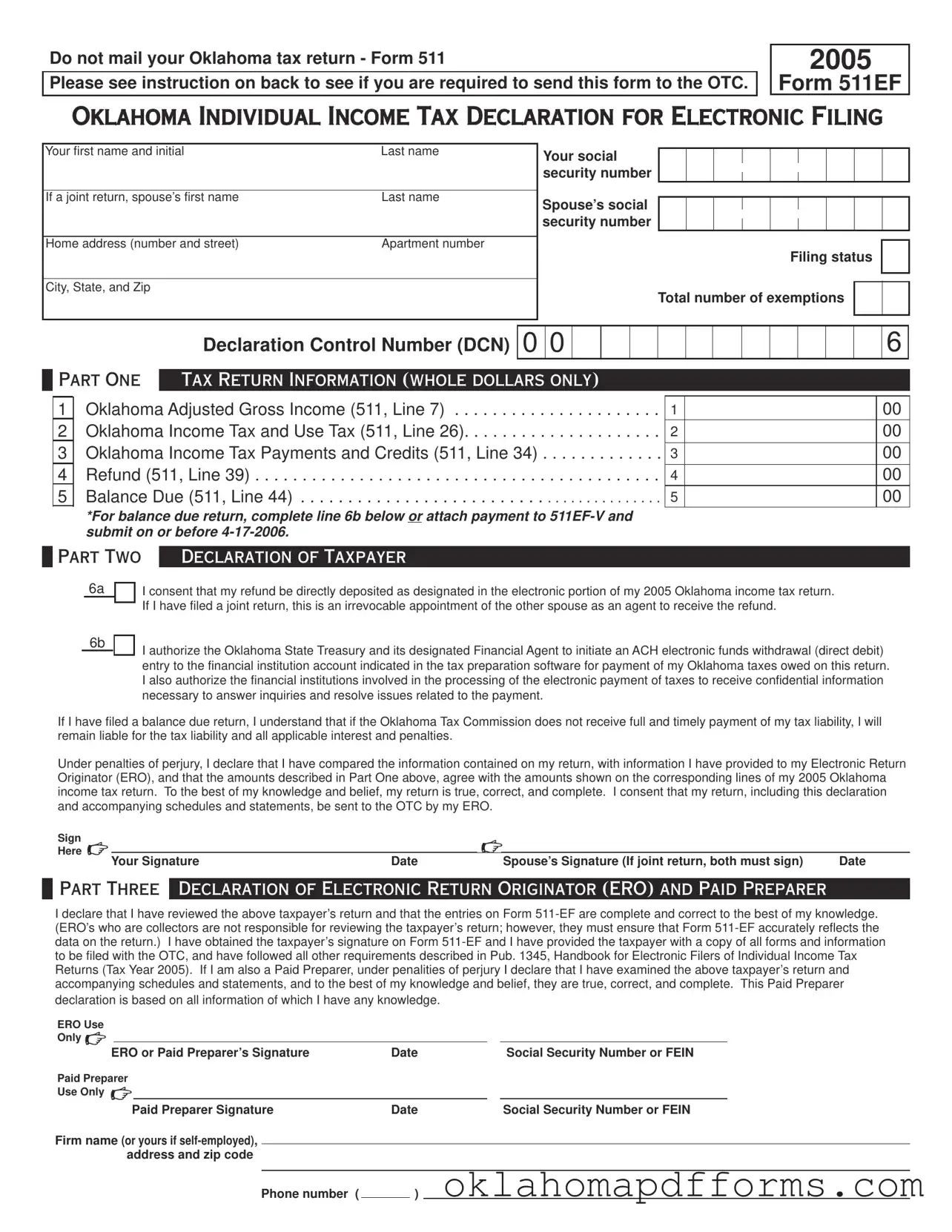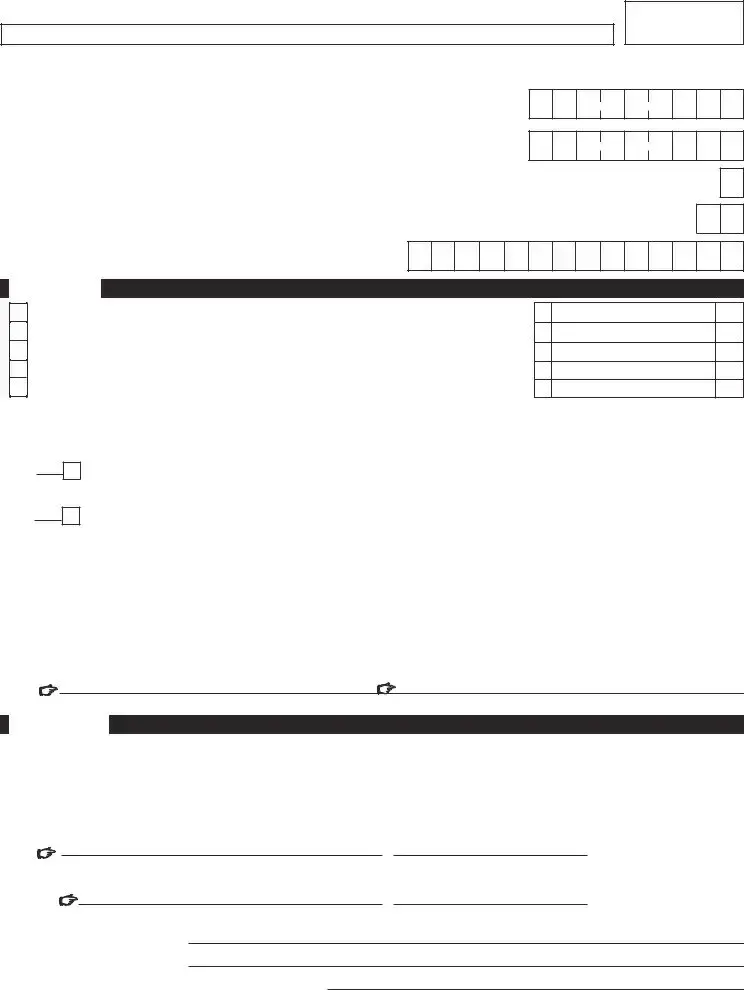The Oklahoma 511EF form is similar to the IRS Form 1040 in that both are used for individual income tax declarations. While the 511EF is specific to Oklahoma and is designed for electronic filing, the Form 1040 serves as the federal tax return. Both documents require personal information such as names, addresses, and Social Security numbers. Additionally, each form includes sections for reporting income, deductions, and tax credits. Taxpayers must sign and verify the accuracy of the information provided, ensuring that they are responsible for any discrepancies that may arise.
Another document that resembles the Oklahoma 511EF is the IRS Form 4868, which is used to request an extension of time to file an individual income tax return. Like the 511EF, Form 4868 requires basic personal information and must be filed electronically or by mail. Both forms allow taxpayers to indicate their tax liability and provide payment options. While the 511EF is focused on the completion of the tax return, Form 4868 serves as a temporary solution, granting additional time for filing while still holding the taxpayer accountable for any taxes owed.
The Oklahoma 511EF also shares similarities with the IRS Form 8862, which is used to claim the Earned Income Credit after disallowance. Both forms require taxpayers to provide detailed information about their income and tax situation. In addition, both documents necessitate the declaration of truthfulness and accuracy under penalties of perjury. Taxpayers using either form must ensure that they meet specific eligibility criteria to claim credits or deductions, reinforcing the importance of compliance with tax regulations.
When navigating the complexities of tax documentation in Oklahoma, it is crucial to ensure that each form is filled out accurately and ethically, especially when engaging in transactions where assets are being transferred. For those looking to formalize agreements related to the sale of personal property, resources like the legalpdf.org can provide the necessary legal Bill of Sale forms that help streamline this process.
In a similar vein, the Oklahoma 511EF is akin to the IRS Form 8888, which is used to allocate a tax refund to multiple accounts. Both forms address the taxpayer's financial preferences regarding refunds, allowing for direct deposit options. The 511EF includes a section for direct deposit consent, while Form 8888 enables taxpayers to specify how they want their refund distributed. Both forms emphasize the importance of accurate banking information to ensure proper processing and delivery of funds.
The Oklahoma 511EF is also comparable to the IRS Form 8822, which is used to change an address with the IRS. Both forms require personal identification details and must be filed to maintain accurate records with tax authorities. While the 511EF is focused on income reporting, Form 8822 ensures that taxpayers receive important correspondence at their current address. Both documents reflect the need for taxpayers to keep their information up-to-date to avoid potential issues with their tax filings.
Additionally, the Oklahoma 511EF is similar to the IRS Form 1099, which reports various types of income other than wages. Both forms require accurate reporting of income and may include penalties for incorrect or incomplete information. While the 511EF is primarily concerned with the overall tax return, the 1099 focuses on specific income sources, such as freelance work or interest earned. Both documents play a crucial role in ensuring that taxpayers report their income accurately to avoid legal complications.
Lastly, the Oklahoma 511EF has similarities with the IRS Form 1040X, which is used to amend a previously filed tax return. Both forms require detailed information about the taxpayer and the changes being made. They also necessitate a declaration of accuracy and completeness. While the 511EF is used for initial filings, the 1040X allows taxpayers to correct mistakes or omissions, highlighting the importance of precision in tax reporting. Each form serves a distinct purpose but underscores the responsibility of taxpayers to ensure their filings are accurate and compliant.



